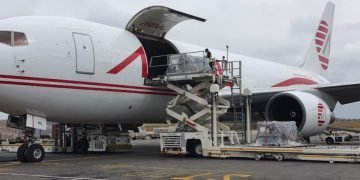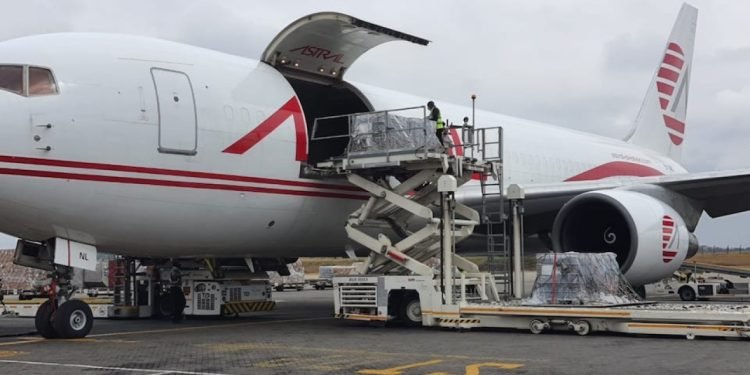By Eva Richardson | The Logistic News | March 27, 2025
In a move that signals a clear strategic redirection, Astral Aviation, the Kenya-based cargo airline, has postponed plans to establish a European Air Operator Certificate (AOC), opting instead to concentrate its expansion efforts on Africa and Asia.
Astral founder and CEO Sanjeev Gadhia told Air Cargo News that while Europe—particularly Malta, previously seen as a cost-effective regulatory gateway—had been under serious consideration, the operational and bureaucratic complexities of launching a new AOC in the region have become a barrier to immediate progress.
“At the moment we have postponed our plans for having a European AOC. We feel that we may need to focus more on China and Africa,” Gadhia explained. “Setting up a new AOC is very tough. The compliance and regulatory challenges can be very exhausting.”
The shift in strategy comes amid a broader decline in Europe-Africa airfreight volumes, which Astral attributes to currency fluctuations and changing trade dynamics. “The strong euro has made freight from Europe to Africa less competitive,” Gadhia noted in an earlier interview, reinforcing the airline’s move toward markets with higher growth potential.
Europe Plans on Hold, But Not Abandoned
Although Gadhia stated that the company feels it has “missed the boat” with the European AOC opportunity, he did not rule out returning to the idea in the future. “When we are ready, we will actually be in a position to decide on that, but it’s no longer a priority for us,” he added.
For now, Astral continues to operate flights to Liege (LGG) in Belgium and Doncaster Sheffield (DSA) in the UK, maintaining a footprint in Europe without establishing a full regulatory presence.
Fleet Overhaul and New Aircraft on the Horizon
Astral has undergone a significant fleet rationalization over the past year. The carrier has phased out its Boeing 757Fs, 727-200Fs, and DC9Fs, and now operates a Boeing 767-200F, 767-300F, and a 737-400F.
Looking ahead, Astral plans to introduce a Boeing 737-800F and two Boeing 777 passenger-to-freighter (P2F) conversions. However, the 777F additions are contingent on the Federal Aviation Administration (FAA) issuing the necessary Supplemental Type Certificate (STC).
Gadhia also confirmed that Astral has postponed its order for two Embraer E190Fs, citing a lack of operational readiness at this stage.
Strengthening Commercial Partnerships
Despite halting its European AOC ambitions, Astral has continued to strengthen its commercial presence across Europe and North America. In February, the airline appointed Network Aviation Group as its General Sales Agent (GSA) for Europe and the U.S., while in January, it entered a Global Sales Partnership Agreement with Euro Cargo Aviation covering Europe, the U.S., and the UAE.
These alliances aim to expand Astral’s market access without the complexities of regulatory re-establishment in Europe.
A Strategic Realignment
Astral Aviation’s hubs in Nairobi, Dubai, Johannesburg, and Liege remain crucial nodes in its growing network. But the company’s latest moves make it clear that the next phase of its growth will focus on the intra-African market and emerging demand in Asia, particularly China—a decision reflecting both economic trends and shifting cargo flows.
Conclusion
Astral Aviation’s pivot away from a European AOC marks more than just a regulatory decision—it is a strategic recalibration that places Africa and Asia at the heart of its growth plan. As global trade routes continue to evolve and traditional corridors face disruption, Astral’s focus on regional strength and operational agility positions it to capture emerging opportunities where they matter most.
Stay with The Logistic News for further insights into Africa’s evolving airfreight landscape.























